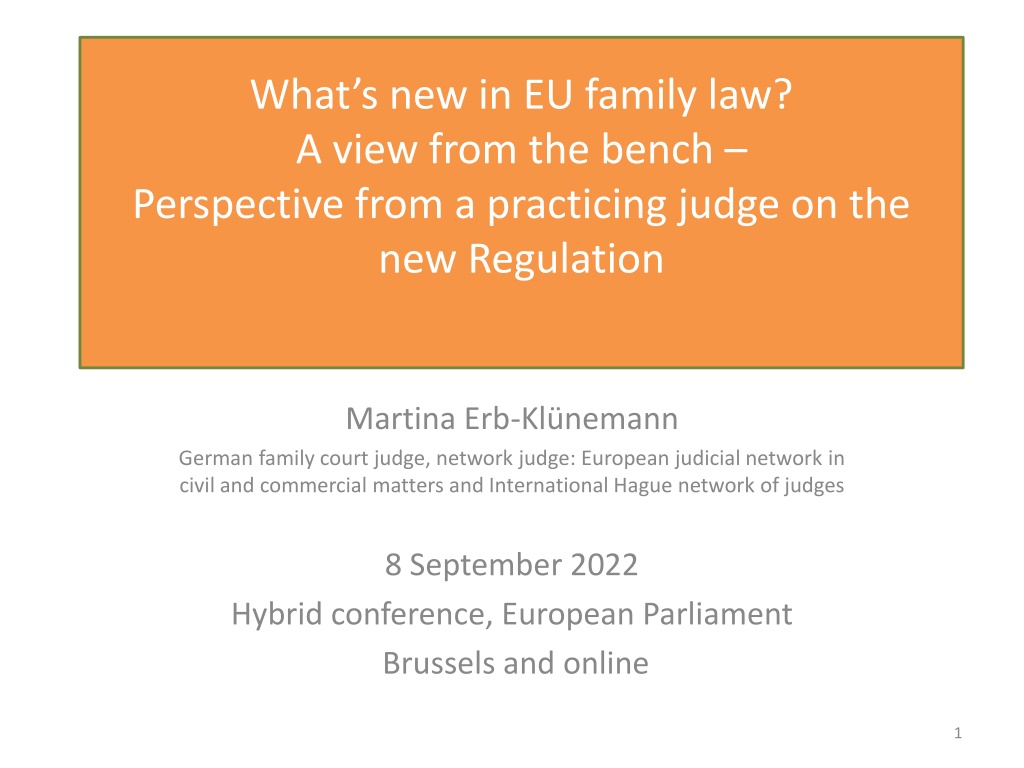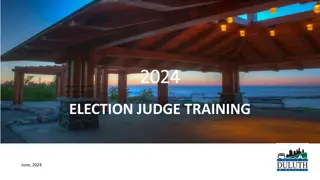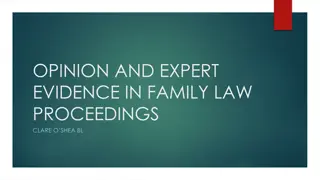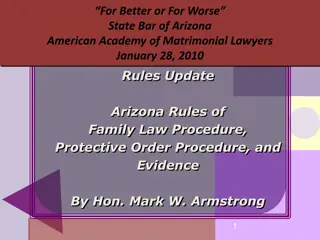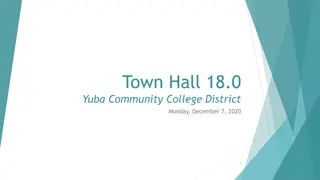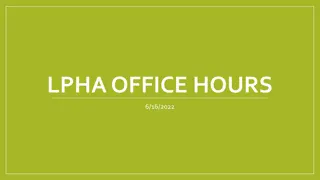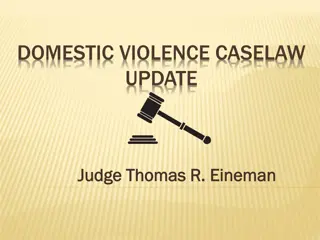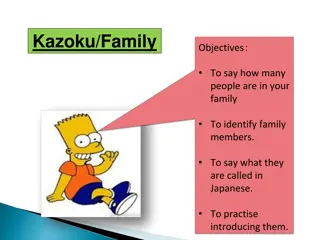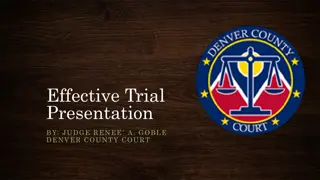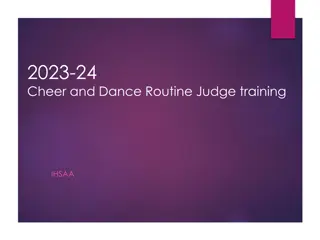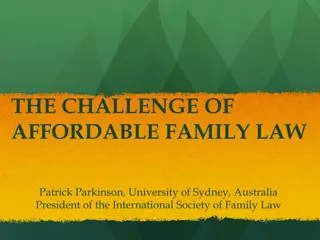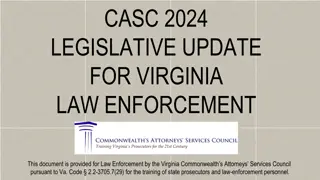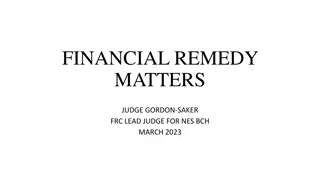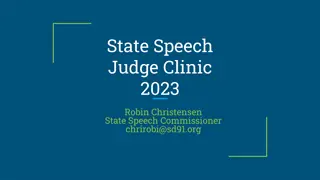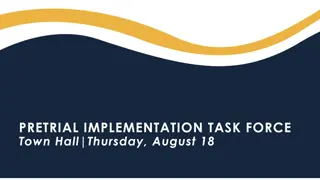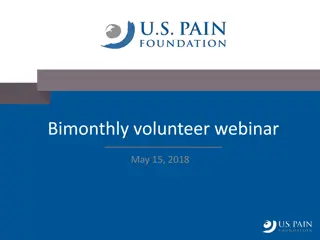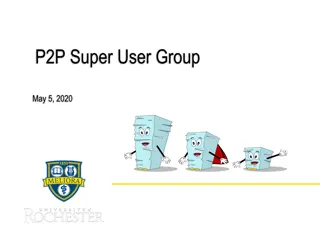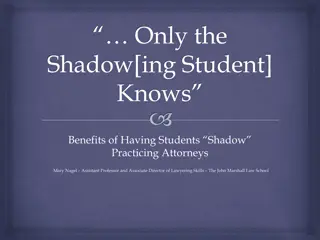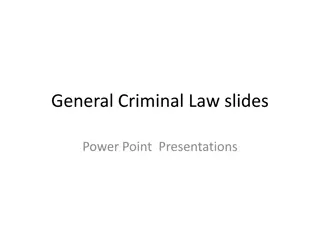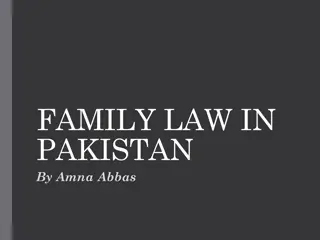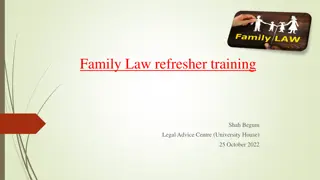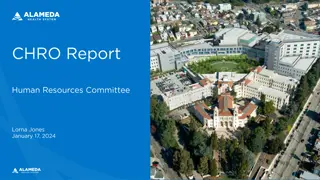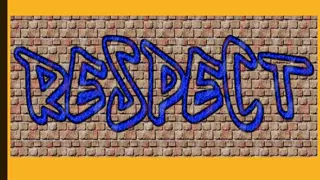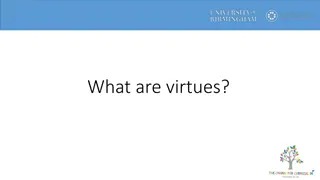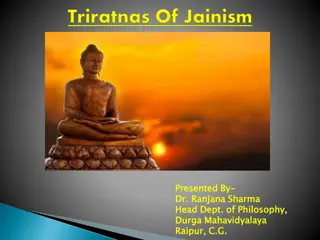Updates in EU Family Law: Insights from a Practicing Judge
Explore the latest developments in EU family law from the perspective of a practicing judge, focusing on new regulations, the hearing of the child, and significant changes in cross-border proceedings. Key topics include children's participation in legal proceedings, standards for refusal of recognition, and the impact on the rights of the child in European family law. Gain valuable insights from Martina Erb-Klünemann, a German family court judge, and learn about the upcoming hybrid conference discussing these important legal matters.
Download Presentation

Please find below an Image/Link to download the presentation.
The content on the website is provided AS IS for your information and personal use only. It may not be sold, licensed, or shared on other websites without obtaining consent from the author. Download presentation by click this link. If you encounter any issues during the download, it is possible that the publisher has removed the file from their server.
E N D
Presentation Transcript
Whats new in EU family law? A view from the bench Perspective from a practicing judge on the new Regulation Martina Erb-Kl nemann German family court judge, network judge: European judicial network in civil and commercial matters and International Hague network of judges 8 September 2022 Hybrid conference, European Parliament Brussels and online 1
All beginnings are difficult The hearing of the child Two new possibilities in return proceedings under the 1980 HC Cooperation and communication Information, training and experience 2
The hearing of the child The new autonomous standard Art. 21 Brussels IIb 1. When exercising their jurisdiction under Section 2 of this Chapter, the courts in the Member States shall, in accordance with national law and procedure, provide the child who is capable of forming his or her own views with a genuine and effective opportunity to express his or her views, either directly, or through a representative or an appropriate body. 2. Where the court, in accordance with national law and procedure, gives a child an opportunity to express his or her views in accordance with this Article, the court shall give due weight to the views of the child in accordance with his or her age and maturity. 3
The hearing of the child New ground for refusal of recognition Art. 39 Brussels IIb 2. The recognition of a decision in matters of parental responsibility may be refused of it was given without the child who is capable of forming his or her own views having been given an opportunity to express his or her view in accordance with Article 21, except were: (a) the proceedings only concerned the property of the child and provided that giving such an opportunity was not required in light of the subject matter of the proceedings; or (b) there were serious grounds taking into account, in particular the urgency of the case. 4
The hearing of the child Personal assessment (+) judges have to apply the new autonomous standard instead of national law in cross-border proceedings (+) autonomous ground for non-recognition instead of the standard of the fundamental principle of procedure of the MS in which recognition is sought, Art. 23 (b) Brussels IIa = important strengthening of the rights of the child ? Many vague legal terms 5
The hearing of the child Art. 21 Brussels IIb 1. When exercising their jurisdiction under Section 2 of this Chapter, the courts in the Member States shall, in accordance with national law and procedure, provide the child who is capable of forming his or her own views with a genuine and effective opportunity to express his or her views, either directly, or through a representative or an appropriate body. 2. Where the court, in accordance with national law and procedure, gives a child an opportunity to express his or her views in accordance with this Article, the court shall give due weight to the views of the child in accordance with his or her age and maturity. Art. 39 Brussels IIb 2. The recognition of a decision in matters of parental responsibility may be refused of it was given without the child who is capable of forming his or her own views having been given an opportunity to express his or her view in accordance with Article 21, except were: (a) the proceedings only concerned the property of the child and provided that giving such an opportunity was not required in light of the subject matter of the proceedings; or (b) there were serious grounds taking into account, in particular the urgency of the case. 6
The new possibilities in Return Proceedings under the 1980 HC (1) Art. 27 Brussels IIb 5. Where the court orders the return of the child, the court may, where appropriate, take provisional measures in accordance with Art. 15 in order to protect the child from the grave risk referred to in Art. 13 (1b) 1980 HC, providing that the examining and taking of such measures would not unduly delay the return proceedings. Art. 2 Brussels IIb 1. For the purpose of Chapter IV decision includes: ...(b) provisional including protective measures...ordered in accordance with Art. 27 (5), Art. 15; 7
The new possibilities in return proceedings under the 1980 HC (1) - Personal assessment (+) broadening of the scope of action giving an active possibility ? Scope of application: Recital 46: for instance: residence with the primary caregiver after return; contact after return ? No unduly delay: What is possible having regard to the limited scope of inquiry in return proceedings? 2 Alternatives: Danger of bringing in criteria of proceedings on parental responsibility and causing delay or strict interpretation and only a very limited scope of application ? Only limited security, Art. 15 (3) Brussels IIb 8
The new possibilities in return proceedings under the 1980 HC (2) - Strengthening of judicial agreements Art. 10 Brussels IIb 1. The courts of the MS shall have jurisdiction in matters of parental responsibility where the following conditions are met: (b) the parties, as well as any other holder of parental responsibility have: ...(ii) expressly accepted the jurisdiction in the course of the proceedings..... (+) choice of court agreements in return proceedings so that the court dealing with the return can make an agreement on questions of parental responsibility legally binding; often asked for by the parties ? Diverse conditions in Art. 10 ? Is it guaranteed in the MS that the court dealing with return proceedings under the 1980 HC has local jurisdiction for questions on parental responsibility? 9
Cooperation and Communication (+) Strengthening of the tasks of the CA s, Art. 76 Brussels IIb, is crucial as they play a very important role (+) Strengthening of direct judicial communication, Art. 86 Brussel IIb, and the use of the EJN and the IHNJ, see recitals ? MS have to take care that the members of the networks have adequate resources ? European Commision and Hague Conference have to offer adequate support ? Increase of advertising the possibilites offered by CA s and the network judges on the international, European and national level 10
Information, Training and Experience Remember: From 72 to 105 Articles From 33 recitals to 98 recitals From 4 certificates to 9 certificates From 19 pages to 120 pages Intelligent, but difficult rulings Need for judges dealing with cross-border family cases to be familiar in addition with other Regulations, international instruments and national law and the relationship between the different instruments Call for specialised courts, see recital 41 for return proceedings, at least family courts Call for further trainings for judges and lawyers by national and European institutions Call for publications such as the Practice Guide to the new Regulation 11
